- Home
- Leo Tolstoy
The Death of Ivan Ilyich and Other Stories
The Death of Ivan Ilyich and Other Stories Read online
Table of Contents
Title Page
Copyright Page
Introduction
THE RAID - A Volunteer’s Story
THE WOODFELLING - A Cadet’s Story
THREE DEATHS
POLIKUSHKA
THE DEATH OF IVAN ILYICH
AFTER THE BALL - A Tale
THE FORGED COUPON
Notes
PENGUIN CLASSICS
THE DEATH OF IVAN ILYICH AND OTHER STORIES
COUNT LEO TOLSTOY was born in 1828 at Yasnaya Polyana in central Russia, and educated privately. He studied Oriental languages and law (unsuccessfully) at the University of Kazan, then led a life of dissipation until 1851, when he went to the Caucasus and joined an artillery regiment. He took part in the Crimean War, and on the basis of this experience wrote The Sevastopol Stories (1855 — 6), which confirmed his tenuous reputation as a writer. After a period in St Petersburg and abroad, where he studied educational methods for use in his school for peasant children at Yasnaya Polyana, he married Sofya (Sonya) Behrs in 1862. The next fifteen years was a period of great happiness. The couple had thirteen children; Tolstoy managed his estates, one in the Volga steppeland, continued his educational projects, cared for his peasants and wrote War and Peace (1869) and Anna Karenina (1878). A Confession (1884) marked a spiritual crisis in his life; he became an extreme moralist and in a series of pamphlets after 1880 expressed his rejection of state and church, indictment of the weaknesses of the flesh and denunciation of private property. His last novel, Resurrection (1900), was written to earn money for the pacifist Dukhobor sect. His teaching earned him many followers at home and abroad, but also much opposition, and in 1901 he was excommunicated by the Russian Orthodox Church. He died in 1910, in the course of a dramatic flight from home, at the small railway station of Astapovo.
ANTHONY BRIGGS, Senior Research Fellow at Bristol University and Professor Emeritus at Birmingham, has written, translated or edited many books and articles on Russian and English literature. A leading authority on Aleksandr Pushkin, he has also edited five volumes of English poetry. His recent translation of War and Peace for Penguin has been widely acclaimed.
DAVID MCDUFF was born in 1945 and was educated at the University of Edinburgh. His publications comprise a large number of translations of foreign verse and prose, including twentieth-century Russian and Scandinavian works. He has translated a number of nineteenth-century Russian prose works for the Penguin Classics series. These include Fyodor Dostoyevsky’s Crime and Punishment, The Brothers Karamazov, The Idiot, The House of the Dead and Poor Folk, Leo Tolstoy’s The Cossacks, and Nikolay Leskov’s ‘Lady Macbeth of Mtsensk’. He has also translated Isaak Babel’s Red Cavalry and Andrey Bely’s Petersburg for Penguin.
RONALD WILKS studied Russian language and literature at Trinity College, Cambridge, after training as a Naval interpreter, and later Russian literature at London University, where he received his Ph.D. in 1972. Among his translations for Penguin Classics are My Childhood,My Apprenticeship and My Universities by Gorky, Diary of a Madman by Gogol, filmed for Irish Television, The Golovlyov Family by Saltykov-Shchedrin, How Much Land Does a Man Need? by Tolstoy, Tales of Belkin and Other Prose Writings by Pushkin, and six other volumes of stories by Chekhov: The Party and Other Stories, The Kiss and Other Stories, The Fiancée and Other Stories, The Duel and Other Stories, The Steppe and Other Stories and Ward No. 6 and Other Stories. He has also translated The Little Demon by Sologub for Penguin.
PENGUIN CLASSICS
Published by the Penguin Group Penguin Books Ltd, 80 Strand, London WC2R ORL, England Penguin Group (USA) Inc., 375 Hudson Street, New York, New York 10014, USA Penguin Group (Canada), 90 Eglinton Avenue East, Suite 700, Toronto, Ontario, Canada M4P 2Y3 (a division of Pearson Penguin Canada Inc.)
Penguin Ireland, 25 St Stephen’s Green, Dublin 2, Ireland (a division of Penguin Books Ltd) Penguin Group (Australia), 250 Camberwell Road, Camberwell, Victoria 3124, Australia (a division of Pearson Australia Group Pry Ltd)
Penguin Books India Pvt Ltd, II Community Centre, Panchsheel Park, New Delhi - 110 017, India Penguin Group (NZ), 67 Apollo Drive, Rosedale, North Shore 0632, New Zealand (a division of Pearson New Zealand Ltd)
Penguin Books (South Africa) (Pty) Ltd, 24 Sturdee Avenue, Rosebank, Johannesburg 2196, South Africa
Penguin Books Ltd, Registered Offices: 80 Strand, London WC2R ORL, England
www.penguin.com
This collection first published in Penguin Classics 2008
5
The Raid and The Woodfelling translation copyright © Ronald Wilks, 1993 Three Deaths and Polikushka translation copyright © Anthony Briggs, 2008; The Death of Ivan Ilyich translation copyright © Anthony Briggs, 2006 After the Ball and The Forged Coupon translation copyright © David McDuff, 2004 Introduction copyright © Anthony Briggs, 2008 All rights reserved
The moral right of the editor and translators has been asserted.
Set in 10.25/12.25 pt PostScript Adobe Sabon Typeset by Rowland Phototypesetting Ltd, Bury St Edmunds, Suffolk
eISBN : 978-1-101-16060-2
www.greenpenguin.co.uk
Penguin Books is committed to a sustainable future for our business, our readers and our planet.
The book in your hands is made from paper certified by the Forest Stewardship Council.
http://us.penguingroup.com
Chronology
1724 Pyotr Tolstoy (great-great-great-grandfather) given hereditary title of Count by Tsar Peter the Great
1821 Death of Prince Nikolay Volkonsky, Tolstoy’s grandfather, at Yasnaya Polyana, Tula Province, 130 miles south-west of Moscow
1822 Marriage of Count Nikolay Tolstoy and Princess Marya Volkonskaya
1828 28 August (Old Style). Birth of fourth son, Leo Nikolayevich Tolstoy, at Yasnaya Polyana
1830 Death of mother
1832 The eldest son, Nikolay, informs his brothers that the secret of earthly happiness is inscribed on a green stick buried at Yasnaya Polyana (Tolstoy later buried there)
1836 Nikolay Gogol’s The Government Inspector
1837 Death of Aleksandr Pushkin in duel Death of father
1840 Mikhail Lermontov’s A Hero of Our Time
1841 Death of Lermontov in duel Death of first guardian Alexandra Osten-Saken, an aunt. The Tolstoy children move to Kazan to live with another aunt, Pelageya Yushkova
1842 Gogol’s Dead Souls
1844 Enters Kazan University, reads Oriental languages
1845 Transfers to Law after failing examinations. Dissolute lifestyle: drinking, visits to prostitutes
1846 Fyodor Dostoyevsky’s ‘Poor Folk’
1847 Inherits estate of Yasnaya Polyana. Recovering from gonorrhoea, draws up scheme for self-perfection. Leaves university without completing studies ‘on grounds of ill health and domestic circumstances’
1848 — 50 In Moscow and St Petersburg, debauchery and gambling, large debts. Studies music
1850 Ivan Turgenev’s A Month in the Country
1851 Travels to the Caucasus with Nikolay, who is serving in the army there. Reads Laurence Sterne: starts translating his Sentimental Journey (1768) (not completed). Writes ‘A History of Yesterday’ (unfinished, first evidence of his powers of psychological analysis). Begins writing Childhood
1852 Death of Gogol. Turgenev’s Sketches from a Hunter’s Album Enters the army as a cadet (Junker); based mainly in the Cossack station of Starogladkovskaya. Sees action against the Chechens, and narrowly escapes capture Childhood
1853 Turkey declares war on Russia ‘The Raid’
1854 France and England declare war on Russia. Crimean War starts
Commissioned, serves on Danube front. November: transferred at own request to Sevastopol, then under siege by allied forces Boyhood
1855 Death of Nicholas I; accession of Alexander II In action until the fall of Sevastopol in August. Gains celebrity with ‘Sevastopol in December’ and further sketches, ‘Sevastopol in May, ’Sevastopol in August 1855’ (1856), ‘Memoirs of a Billiard Marker’, ‘The Woodfelling’
1856 Peace signed between Russia, Turkey, France and England Turgenev’s Rudin In St Petersburg, moves in literary circles; associates with Turgenev, Ivan Goncharov, Nikolay Nekrasov, Afanasy Fet and others. Leaves the army. Death of brother Dmitry ‘The Snowstorm’, ‘Two Hussars’, ‘A Landowner’s Morning’
1857 February-August. First trip abroad, to Paris (lasting impression of witnessing an execution by guillotine), Geneva and Baden-Baden Youth, ‘Lucerne’
1858 Long-term relationship with peasant woman on estate, Aksinya Bazykina, begins ‘Albert’
1859 Goncharov’s Oblomov; Turgenev’s The Home of the Gentry Founds primary school at Yasnaya Polyana ‘Three Deaths’, Family Happiness
1860 Death of brother Nikolay from tuberculosis Dostoyevsky’s Notes from the House of the Dead (1860-61). Turgenev’s On the Eve
1860 — 61 Emancipation of serfs (1861). Other reforms follow: Elective District Councils (zemstvos) set up (1864); judicial reform (1865). Formation of revolutionary Land and Liberty movement. Commencement of intensive industrialization; spread of railways Serves as Arbiter of the Peace, dealing with post-Emancipation land settlements. Quarrels with Turgenev and challenges him (no duel). Travels in France, Germany, Italy and England. Loses great deal of money through gambling. Meets Pierre-Joseph Proudhon in Brussels
1862 Turgenev’s Fathers and Sons Starts a magazine at Yasnaya Polyana on education for the peasants; abandons it after less than a year. Police raid on Yasnaya Polyana. Considers emigrating to England and writes protest to the Tsar. Marries Sofya Andreyevna Behrs (b. 1844)
1863 Polish rebellion Birth of first child, Sergey (Tolstoy and his wife were to have thirteen children - nine boys and four girls - of whom five die in childhood). Begins work on a novel, ‘The Decembrists’, which is later abandoned, but develops into War and Peace ‘Polikushka’, The Cossacks
1865 Nikolay Leskov’s ‘Lady Macbeth of Mtsensk’ First part of War and Peace (titled 1805)
1866 Attempted assassination of Tsar Alexander II Dostoyevsky’s Crime and Punishment
1867 Turgenev’s Smoke Visits Borodino in search of material for battle scene in War and Peace
1868 Dostoyevsky’s The Idiot
1869 Publication of War and Peace completed
1870 — 71 Franco-Prussian War. Municipal government reform Dostoyevsky’s Devils Studies ancient Greek. Illness; convalesces in Samara (Bashkiriya). Begins work on primer for children. First mention of Anna Karenina. Reads Arthur Schopenhauer and other philosophers. Starts work on novel about Peter the Great (later abandoned)
1872 ‘God Sees the Truth but Waits’, ‘A Prisoner of the Caucasus’
1873 Begins Anna Karenina. Raises funds during famine in Bashkiriya, where he has bought an estate. Growing obsession with problems of death and religion; temptation to commit suicide
1874 Much occupied with educational theory
1875 Beginning of active revolutionary movement
1875 — 7 Instalments of Anna Karenina published
1877 Turgenev’s Virgin Soil Journal publication of Anna Karenina completed (published in book form in 1878)
1877 — 8 Russo-Turkish War
1878 Reconciliation with Turgenev, who visits him at Yasnaya Polyana. Works on ‘The Decembrists’ and again abandons it. Works on A Confession (completed 1882, but banned by the religious censor and published in Geneva in 1884)
1879 Dostoyevsky’s The Brothers Karamazov
1880 Works on A Critique of Dogmatic Theology
1881 Assassination of Tsar Alexander II. With accession of Alexander III, the government returns to reactionary policies Death of Dostoyevsky Writes to Tsar Alexander III asking him to pardon his father’s assassins
1882 Student riots in St Petersburg and Kazan Universities. Jewish pogroms and repressive measures against minorities Religious works, including new translation of the Gospels. Begins ‘The Death of Ivan Ilyich’ and What Then Must We Do? Studies Hebrew
1883 Deathbed letter from Turgenev urging Tolstoy not to abandon his art
1884 Family relations strained; first attempt to leave home. ‘What I Believe’ banned. Collected Works published by his wife
1885 Tension with his wife over new beliefs. Works closely with Vladimir Chertkov, with whom (and others) he founds a publishing house, The Intermediary, to produce edifying literature for the common folk. Many popular stories written 1885 — 6, including ‘What Men Live By’, ‘Where Love Is, God Is’, ‘Strider’
1886 Walks from Moscow to Yasnaya Polyana in five days. Works on land during the summer. Denounced as a heretic by Archbishop of Kherson ‘The Death of Ivan Ilyich’, ‘How Much Land Does a Man Need?’, What Then Must We Do?
1887 Meets Leskov ‘On Life’
1888 Anton Chekhov’s The Steppe Renounces meat, alcohol and tobacco. Growing friction between his wife and Chertkov. The Power of Darkness, banned in 1886, performed in Paris
1889 Finishes The Kreutzer Sonata. Begins Resurrection (works on it for ten years)
1890 The Kreutzer Sonata banned, though, following an appeal by his wife to the Tsar, publication is permitted in Collected Works
1891 Convinced that personal profits from writing are immoral, renounces copyright on all works published after 1881 and all future works. His family thus suffers financially, though his wife retains copyright in all the earlier works. Helps to organize famine relief in Ryazan province. Attacks smoking and alcohol in ‘Why Do Men Stupefy Themselves?’
1892 Organizes famine relief. The Fruits of Enlightenment (published 1891) produced at Maly theatre, Moscow
1893 Finishes ‘The Kingdom of God is Within You’
1894 Accession of Tsar Nicholas II. Strikes in St Petersburg Writes preface to a collection of stories by Guy de Maupassant. Criticizes Crime and Punishment
1895 Meets Chekhov. The Power of Darkness produced at Maly theatre, Moscow ‘Master and Man’
1896 Chekhov’s The Seagull Sees production of Hamlet and King Lear at Hermitage theatre, severely critical of William Shakespeare
1897 Appeals to authorities on behalf of Dukhobors, a pacifist religious sect, to whom permission is granted to emigrate to Canada What is Art?
1898 Formation of Social Democratic Party. Dreyfus Affair in France Works for famine relief
1899 Widespread student riots Serial publication of Resurrection (in book form in 1900)
1900 Meets Maxim Gorky, whom he calls a ‘real man of the people’
1901 Foundation of Socialist Revolutionary Party Excommunicated from Orthodox Church for writing works ‘repugnant to Christ and the Church’. Seriously ill, convalesces in Crimea; visitors include Chekhov and Gorky
1902 Finishes ‘What is Religion?’ Writes to Tsar Nicholas II on evils of autocracy and ownership of property
1903 Protests against Jewish pogroms in Kishinev ‘After the Ball’
1904 Russo-Japanese War. Russian fleet destroyed in Tsushima Straits. Assassination of V. K. Plehve, Minister of the Interior Death of Chekhov Death of second eldest brother Sergey. Pamphlet on Russo-Japanese War published in England ‘Shakespeare and the Drama’
1905 Attempted revolution in Russia (attacks all sides involved). Potemkin mutiny. S. Yu. Witte becomes prime minister Anarchical publicist pamphlets Introduction to Chekhov’s ‘Darling’
1908 Tolstoy’s secretary, N. N. Gusev exiled ‘I Cannot be Silent’, a protest against capital punishment
1909 Increased animosity between his wife and Chertkov; she threatens suicide
1910 Corresponds with Mahatma Gandhi concerning the doctrine of non-violent resist
ance to evil. His wife threatens suicide; demands all her husband’s diaries for past ten years, but Tolstoy puts them in bank vault. Final breakdown of relationship with her. 28 October: leaves home. 7 November: dies at Astapovo railway station. Buried at Yasnaya Polyana
1912 First publication of ‘The Devil’, ‘Father Sergius’, Hadji Murat, ‘The Forged Coupon’
Introduction
Men must endure
Their going hence, even as their coming hither:
Ripeness is all.
King Lear V ii
THE VOICE OF DEATH
One of Leo Tolstoy’s distant ancestors is likely to have been a large man; the family surname is an adjective implying bulk. Generations later, Leo came into the sturdily named dynasty having inherited every last tendency to massiveness. He turned out to have a big, strong body - he could lift 180lb (82 kilos) with one hand - a large ego, and a colossal appetite for life and learning, along with a formidable intellect. He lived a long life, fathering thirteen children and dying in his eighty-third year, famous for having written, by common acknowledgement, the biggest and best novel in the world. By then he was also recognized across the globe as a titan of moral and spiritual leadership. His Collected Works run to ninety large volumes; there isn’t a delicate lyric among them. For Leo Tolstoy the only scale was gargantuan. It comes as no surprise, therefore, to learn that when, at the age of forty-one, he was afflicted with what we might now call a mid-life crisis, it was an acute one.
The trouble started in the late 1860s as he finished War and Peace (1869). Now, in his full maturity, at the zenith of his physical and intellectual powers, bursting with vitality and nurtured by success, Tolstoy should have been a happy man. But on the contrary, the sheer goodness of living seems to have made him all the more obsessed with the inevitability of death. What he had could be taken away, would be taken away, and soon. His wife describes how he felt at this time: ‘Often he said his brain hurt, some painful process was going on inside it, everything was over for him, it was time for him to die.’1 Some of the pain came from what he was reading; during the summer of 1869 he was immersed in the work of the German philosopher Arthur Schopenhauer, whose poisonous pessimism was enough to make a happy man sad, and a sad man suicidal.

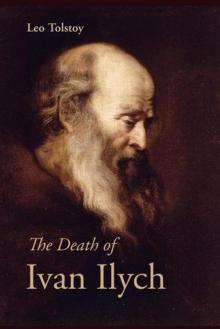 The Death of Ivan Ilych
The Death of Ivan Ilych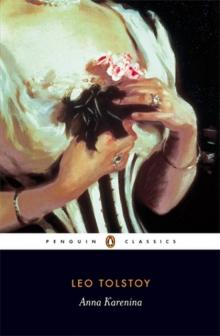 Anna Karenina
Anna Karenina Resurrection
Resurrection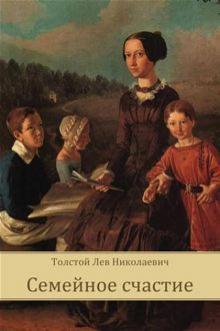 Family Happiness
Family Happiness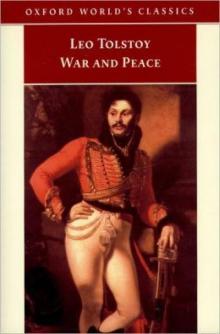 War and Peace
War and Peace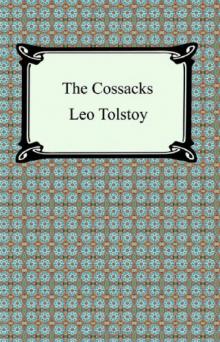 The Cossacks
The Cossacks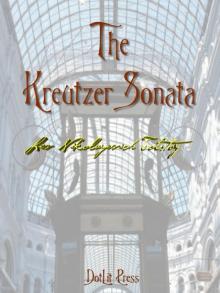 The Kreutzer Sonata
The Kreutzer Sonata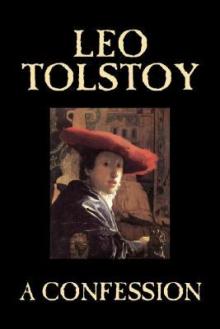 A Confession
A Confession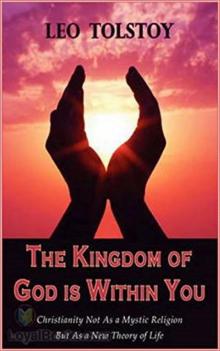 The Kingdom of God Is Within You
The Kingdom of God Is Within You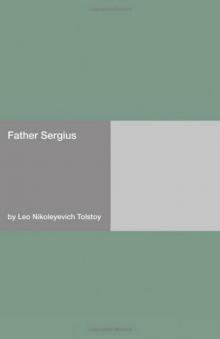 Father Sergius
Father Sergius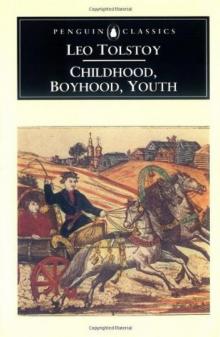 Childhood, Boyhood, Youth
Childhood, Boyhood, Youth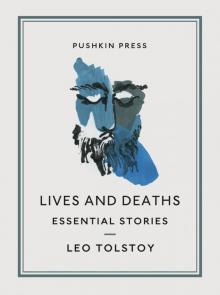 Lives and Deaths
Lives and Deaths The Devil
The Devil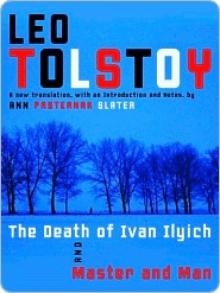 The Death of Ivan Ilyich and Master and Man
The Death of Ivan Ilyich and Master and Man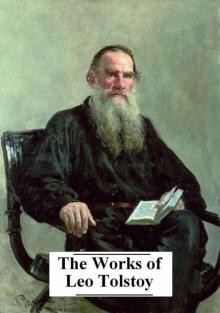 The Complete Works of Leo Tolstoy (25+ Works with active table of contents)
The Complete Works of Leo Tolstoy (25+ Works with active table of contents)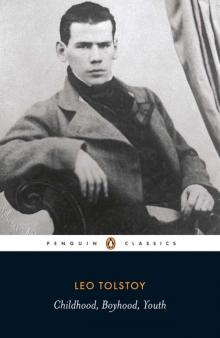 Childhood, Boyhood, Youth (Penguin ed.)
Childhood, Boyhood, Youth (Penguin ed.)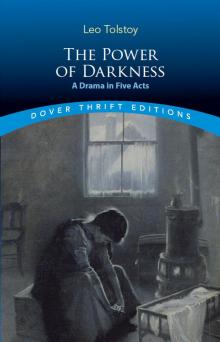 The Power of Darkness
The Power of Darkness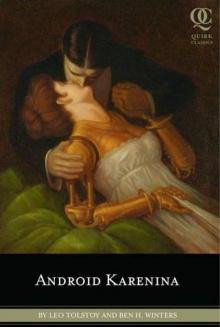 Android Karenina
Android Karenina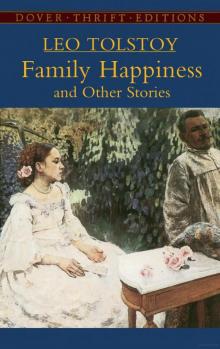 Family Happiness and Other Stories
Family Happiness and Other Stories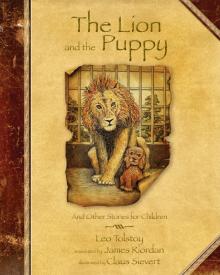 The Lion and the Puppy
The Lion and the Puppy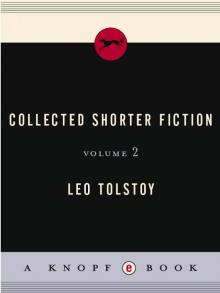 Collected Shorter Fiction, Volume 2
Collected Shorter Fiction, Volume 2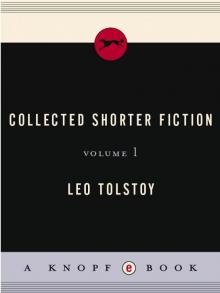 Collected Shorter Fiction, Volume 1
Collected Shorter Fiction, Volume 1